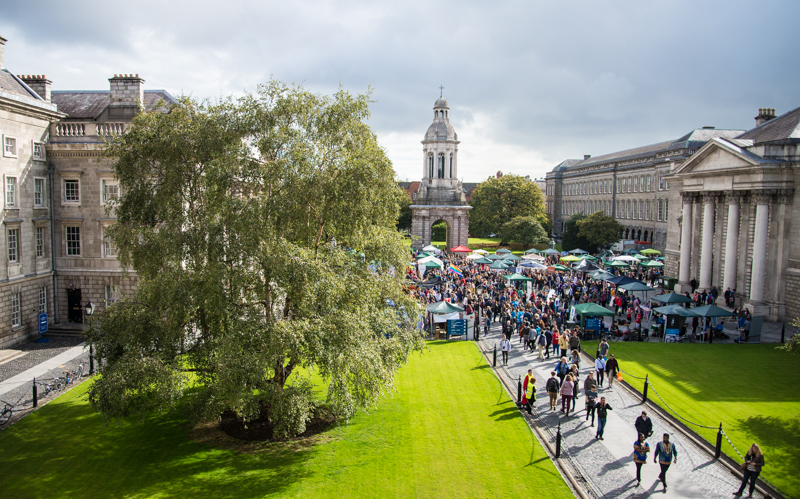In what feels like the blink of an eye, another year has passed and Freshers’ Week has rolled around once again. The first years arrive, fresh with the arrogance of a successful CAO, second years are manning the society stands and the prodigal students return – a mass beckoning of the Erasmus expats back to the homeland.
Erasmus arrivals will come through Irish airports with distinctive stories, each unique and highly personal. Everyday life’s highs and lows are harsher while on Erasmus, a direct result of distance. Although living in Ireland is not always perfect, it feels as if we are cocooned in bubble wrap. Leaving the support system of family, and the comfort of fluency, undoubtedly leaves you more vulnerable.
There will be people who may feel entirely lost on their readmittance into Ireland, having carved a new life for themselves while away. Those who have lived up to the heavy burden of Erasmus being the “best year of their lives”, who have exceeded their own expectations, academically or otherwise. Some will have fallen in love, with a person or with the life they lived, preferring the feeling of control over their own lives that only moving out can provide. If nothing else, Erasmus was a chance for a fresh start, to create yourself anew.
However, no two experiences are the same. For some, the hype of Erasmus is a cruel joke, the definitive low point of their college experience. They may have filled their days with activity or cheap alcohol to forget their loneliness. For some, arriving in Ireland means no longer having to feel alone. It offers a life buoy to people who couldn’t attend medical professionals abroad, their mental health struggling as a result. Learning the hard way, others discovered that absence does not make the heart grow fonder, finding it difficult to live a life without the people they left behind.
Returning home evokes conflicting feelings, a blend of relief and disappointment to return to the dear life we once knew. Experience provides a new perspective. We are now hyper aware of the habits of our own, for better or for worse. We were able to endure two-hour legal classes in German, so lectures in English for a mere 50 minutes will be almost enjoyable now.
But like putting a plaster on a gaping wound, Erasmus was only a temporary reprise from the exorbitant expense of Dublin. Coming home was less of a shock and more a resignation to the fact that there were better, more efficient, cheaper options in the world than Dublin. Unlike in Ireland, universities on the mainland of Europe help with securing accommodation and the cost of living is higher in Dublin than in Rome, Vienna, Stockholm and other cities. For example, a single room in Tübingen, Germany costs less than €300, as opposed to €600 for a shared room in Dublin in a location 30-40 minutes away from College. More populated areas, such as Munich and Hamburg, are still cheaper than Dublin, with bigger rooms available for rent from €350 to €375.
Having gotten used to the European way of life, Ireland presents a sharp dose of reality. Public transport is a necessity, and living in rural Ireland, or even the heart of Dublin, is somewhat disappointing. At best, public transport is on time. At worst, it does not show up and is outrageously expensive. A student ticket for the duration of the semester in south Germany costs €85 and enables 6 months worth of unlimited travel on the bus. At approximately €200 in bigger towns, this affords you unlimited access to the U-Bahn, S-Bahn, buses, and trams, as well as the boats in Hamburg. In Ireland, your Student Leap Card will cost you the guts of €1,000 by the end of the college term. Some German universities reimbursed their students’ travel expenses at the end of the semester. Meanwhile, we pay high prices for a sub-par experience. I can safely say that, although it is easy to miss Dublin, there is no joy in coming back to its constant crises.
As the saying goes, níl aon tinteán mar do thinteán féin, and, so far, it’s been interesting coming back to Dublin with a new perspective and an appreciation of the things that went unnoticed before: the architecture, the buskers, even the goddamned pigeons. Although Erasmus experiences are highly individual, the common theme is that people will come away learning something about themselves and being proud of their ability to survive, and hopefully thrive, in a place so far from their comfort zone. They say the grass is greener on the other side and, despite all its failings, there’s no grass greener than that of the Emerald Isle.







